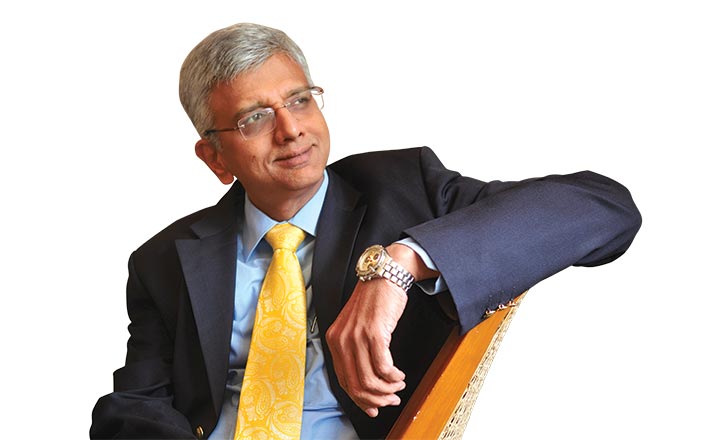
First an admission. I don’t know if Nassim Taleb will like a person such as me to review his book. I am not sure if I have any skin in the game. I am not the publisher, neither am I a book seller. While I have bought his other books [even got one of them autographed by him at JLF a couple of years ago], I did not even buy the book Skin In The Game.
Am I even qualified to review the books? In that respect I do have ‘skin in the game’. I am a voracious reader and have authored a few books of my own. I have also held a job for more than three decades in a high pressure business like marketing and advertising, and I have also been a guest faculty at various B Schools. You may think I am qualified, but the question is would Nassim Taleb consider me ‘qualified’?
You may be wondering why am I going on and on about my qualifications to review a book. Well the truth is Nassim Taleb has decreed in his book Skin In The Game that most book reviewers have no skin in the game. He includes academics, journalists, policy wonks, philosophers, bureaucrats, politicians, economists, bankers, investment analysts and more to the list of people [even Nobel laureates do not get spared] who operate with ‘no skin in the game’. There is some truth in what he sets out to show. But only some.
What is the book Skin In The Game about. To quote Nassim Taleb: “Just as Eve came out of Adam’s ribs, so does each book of the Incerto emerge from the penultimate one’s ribs. The Black Swan was an occasional discussion in Fooled by Randomness; the concept of convexity to random events, the theme of Antifragile, was adumbrated in The Black Swan; and finally Skin In The Game was a segment of Antifragile…”
A confession. I have read all the above mentioned books, now that includes Skin In The Game and I am a fan. Nassim Taleb starts his argument with how the former Citibank CEO gathered a profit bonus totaling $150 million only to see the bank totter towards ruin a year or two later. Did he write a cheque to save the back, asks Nassim Taleb.
The argument is that if you are taking a decision about something, you enjoy the upside but do you get penalised for the downside as well?
After the financial crisis of 2009 many corporates and investment banks figured out the problem of ‘skin in the game’. The term ‘claw back’ came into being around that time. The rule was that what you earn in one year will not be paid to you when the year ends, but will be paid to you over three or five years. And if in the year following you managed to lose money for the bank [or your fund or your company], you lose some of the money, that was waiting for you from the profit bonus pool. It is reported that the use of claw back had increased in the US from just 2% in 2005 to around 80% in 2010; but there have been some statutory issues yet to be resolved.
So while reading Skin In The Game I was hoping for an expose on the ‘claw back’ rule and its non-implementation, but I was surprised not to see it even featuring in the footnotes of the book. If that is one flaw I found in the book, I also felt that the tone and manner of the book was bordering on disdain for anything and everything that does not agree with Nassim Taleb.
While listening to him at the Zee Jaipur Literature Festival a couple of years ago, I was left with the feeling that he was so angry with the world. And reading this new book I notice that the anger seems to have increased.
The book could have made its arguments with much less venom and vitriol simply because there is a lesson that he is trying to point us to. Why should we let people who have no ‘skin in the game’ to take decisions that may affect us. In a sense democracy is a way this has been handled. The policy fails, the politician loses the election and therefore he has ‘skin in the game’. But the bureaucrat survives and continues to play havoc, is Nassim Taleb’s argument. A lot of that is true though sometimes bureaucrats do get caught out, but as Nassim Taleb says, they have caused the damage for all of us to endure.
As an advertising professional, in the days gone by, my agency used to be paid by its clients based on the media billings. So was there an incentive to push for bigger budgets, may be. But if you do that indiscriminately and the results don’t come as planned, who loses the account? The agency. So there was adequate ‘skin in the game’.
If you are a Nassim Taleb fan do pick up the book. It will not disappoint, except for the excessive tirade against many parties who Nassim Taleb feels are getting away with no ‘skin in the game’.











